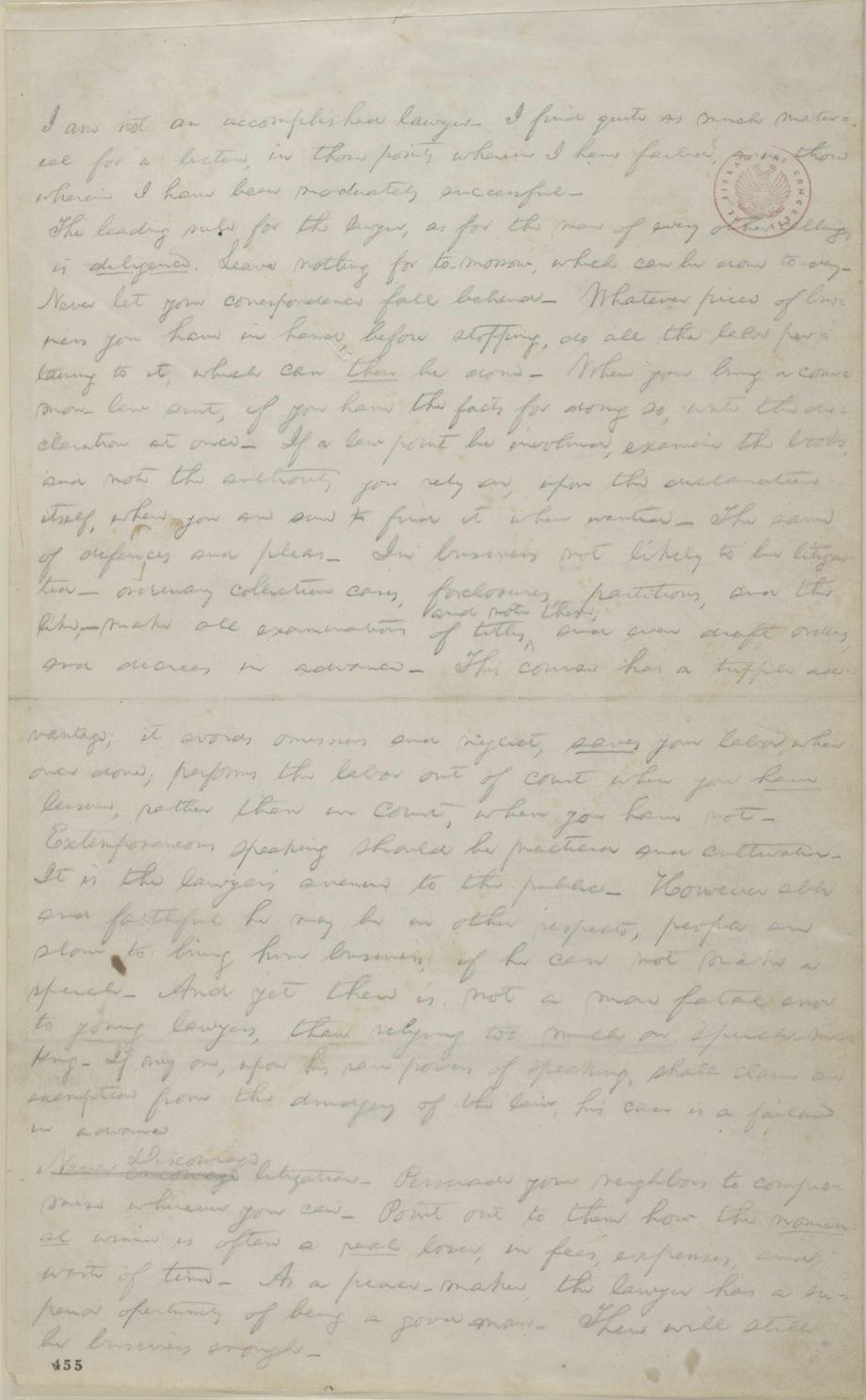The Vault is Slate’s new history blog. Like us on Facebook; follow us on Twitter @slatevault; find us on Tumblr. Find out more about what this space is all about here.
Abraham Lincoln didn’t leave much written reflection on the profession that he pursued for almost twenty-five years, so these three pages of thoughts on the practice of law are particularly significant. The provenance of this document is not entirely clear; historians speculate that these are notes Lincoln made in preparation for an 1850s-era lecture to a group of law students. The document is now held at the Library of Congress (you can read a transcript on their website).
The document begins with characteristic modesty: “I am not an accomplished lawyer.” The future President proceeded to advise his audience on the need for diligence, encouraged them to practice a dedication to research and a way with words, and commented on the moral qualities necessary for good lawyering.
Lincoln warned the students “Extemporaneous speaking should be practiced and cultivated,” as “however able and faithful [a lawyer] may be in other respects, people are slow to bring him business if he cannot make a speech.” At the same time, the young lawyer shouldn’t trust that fancy flourishes will save him: “If any one, upon his rare powers of speaking, shall claim an exemption from the drudgery of the law, his case is a failure in advance.”
Despite its profitable nature, the lawyer should at all times “discourage litigation,” on the principle that “as a peacemaker the lawyer has a superior opportunity of being a good man. There will still be business enough.”
Abe took lawyer jokes seriously. He wrote: “There is a vague popular belief that lawyers are necessarily dishonest.” Lincoln worried that young people who wanted to become lawyers would “yield to the popular belief” and indulge in shady dealings.
“If in your own judgment you cannot be an honest lawyer,” he wrote, “resolve to be honest without being a lawyer. Choose some other occupation, rather than one in the choosing of which you do, in advance, consent to be a knave.”
The document, with commentary by former judge Frank Ceresi and Lincoln scholar Brian Dirck, is available via Kindle under the title Abraham Lincoln’s Law Notes.
Thanks to Nell Minow and Frank Ceresi.
